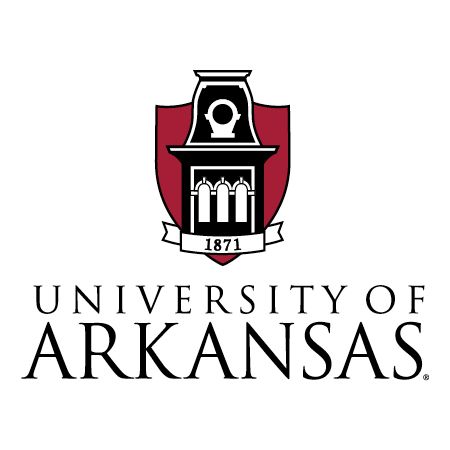New program will identify healthcare challenges and design solutions
The U of A and regional healthcare leaders are partnering to create an innovative new program that will focus on healthcare industry challenges and create new solutions to bring to market.
The Northwest Arkansas Biodesign Sprints (NABS) program is a partnership with the university’s Office of Entrepreneurship and Innovation (OEI), the U of A’s Department of Biomedical Engineering, HealthTech Arkansas, and four major systems regional health.
Housed at the Collaborative in Bentonville and inspired by the success of Stanford University’s Byers Center for Biodesign, NABS will leverage existing partnerships to:
- Build a community of people trained in innovation methodologies,
- Articulate the clinical and health system needs and
- Produce early-stage ideas and prototypes for market.
“The NABS program grew out of our experiences working intensively with Arkansas Children’s Hospital and Research Institute over the past 18 months,” said Sarah Goforth, executive director of the Office of Entrepreneurship and of innovation. “With the help of Arkansas Children’s partners who were willing to be at the forefront of creating new ways to drive innovation, we learned that problems and ideas are often dormant in the mind. busy clinicians who may not have the wherewithal to keep them going. It is fertile ground for innovation.
NABS will initially partner with four hospitals and health systems: Arkansas Children’s, Washington Regional Medical Center, Mercy and Northwest Health.
Two types of sprints — short, focused meetings designed to identify challenges and propose solutions — will be held at partner hospitals and led by administrators from HealthTech Arkansas. OEI, which has supported the development and success of several medical device and diagnostic startups over the past five years, will connect student talent from all business and engineering disciplines with the sprints, building the capacity of teams and deepening the culture of healthcare innovation on the U of A campus. The Department of Biomedical Engineering will support the prototyping and testing of new innovations emerging from the program.
“NABS will provide the infrastructure, resources and direction to help these four health systems develop innovative solutions to their own challenges and create their own intellectual property,” said Jeff Stinson, director of HealthTech Arkansas. “We are very excited to leverage the relationships we have established with our state’s hospitals and health systems to build on the good work we are doing with them.”
The sprints that NABS programming will focus on are: (1) challenge sprints, which are department-level exercises to identify challenges and issues that lend themselves to new innovations, and (2) design sprints , which bring together internal and external subject matter experts. brainstorm solutions to known problems. For each, NABS administrators will contribute post-sprint resources to continue developing the innovations toward commercialization.
“The programming content builds on our recent NIH grant focused on integrating design, entrepreneurship, and service learning into the biomedical engineering curriculum. Innovations developed by NABS teams will be directly informed by patient and clinician needs, increasing the likelihood that they will improve clinical outcomes,” said Raj Rao, Head of Biomedical Engineering. “NABS will deliver outsized value in developing talent, market-ready innovations and scalable startups by creating a mechanism for clinicians, engineers and entrepreneurs to partner in an immersive context.”
NABS is funded by a $685,330 grant from the Walton Family Foundation and is the second of three verticals (the first being outdoor recreation and the third being software) planned for the Greenhouse, the incubation facility of OEI products and businesses at the Collaborative in Bentonville.
About the U of A Office of Entrepreneurship and Innovation: The Office of Entrepreneurship and Innovation creates and organizes innovation and entrepreneurship experiences for students of all disciplines. Through the Brewer Family Entrepreneurship Hub, McMillon Innovation Studio, Startup Village and Greenhouse at the Collaborative, OEI offers free workshops and programs, including social and business innovation design teams, internships in business, competitions and business incubations. A unit of the Sam M. Walton College of Business and Economic Development Division, OEI also offers on-demand support for students who will be innovators within existing organizations and entrepreneurs starting something new.
About U of A Biomedical Engineering: The Department of Biomedical Engineering has established itself as one of the premier research departments on campus that is committed to training undergraduate and graduate students to become leaders in the field of biomedical engineering. More information can be found at biomedical-engineering.uark.edu.
About HealthTech Arkansas: HealthTech Arkansas is an early-stage investment fund and accelerator recruiting globally for the most accomplished startups in digital health, medical devices, and diagnostic platforms. Companies accepted into the program are guaranteed at least two pilot projects or clinical trials among 12 leading hospitals, health systems, and medical practices in Arkansas. HealthTech Arkansas is the only program in the United States to secure pilot projects and clinical trials with healthcare providers. More information can be found at HealthTechArkansas.com.
About the University of Arkansas: The University of Arkansas offers an internationally competitive education for undergraduate and graduate students in more than 200 academic programs. The university contributes to new knowledge, economic development, basic and applied research, and creative activity while providing services to academic and professional disciplines. The Carnegie Foundation ranks the University of Arkansas among the few colleges and universities in America with the highest level of research activity. US News and World Report ranks the U of A among its top US public research universities. Founded in 1871, the University of Arkansas comprises 10 colleges and schools and maintains a low student-faculty ratio that promotes personal attention and close mentorship.


Comments are closed.